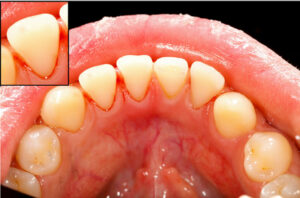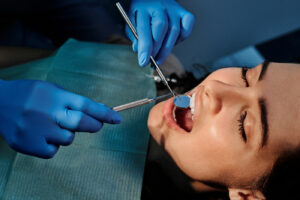 Did you know that there is a strong connection between oral health and sleep? It might sound strange, but it’s true—our overall health plays a big role in our oral health (and vise-verse). The state of our oral health can greatly impact the quality of our sleep, and conversely, poor sleep can have negative effects on our oral health.
Did you know that there is a strong connection between oral health and sleep? It might sound strange, but it’s true—our overall health plays a big role in our oral health (and vise-verse). The state of our oral health can greatly impact the quality of our sleep, and conversely, poor sleep can have negative effects on our oral health.
Here we’ll explore the link between oral health and sleep, and discuss some tips to help you improve both. Whether you’re struggling with dental issues, sleep disturbances, or both, this article from your dentists in Mesa will provide valuable insights into how to improve your overall well-being.
Studies & Research
According to a study conducted in 2017 on over 8300 Korean adults, individuals who slept less than 5 hours a night exhibited a higher prevalence of tooth decay compared to those who met the recommended minimum of 7 hours of sleep.
While the link between the duration of sleep and periodontal disease (gum disease) was weaker, another study—later published in the Journal of Clinical Periodontology—found a “novel, direct and independent association between sleep duration and the prevalence of periodontitis.”
The Relationship Between Sleep and Oral Health
Sleep is vital for our body’s restoration, including oral tissues, as it provides an opportunity for the immune system to repair and protect our body.
Poor sleep quality and quantity can lead to various oral health issues, such as tooth decay, gum disease, and bad breath.
The lack of sleep can also weaken the immune system, making it more difficult for the body to fight off infections.
How Sleep Affects Oral Health
 Saliva is a crucial component of oral health as it neutralizes harmful acids and bacteria in the mouth, protecting the teeth and gums. However, sleep deprivation can decrease saliva production, leading to dry mouth and an increased risk of tooth decay and gum disease.
Saliva is a crucial component of oral health as it neutralizes harmful acids and bacteria in the mouth, protecting the teeth and gums. However, sleep deprivation can decrease saliva production, leading to dry mouth and an increased risk of tooth decay and gum disease.
Snoring and obstructive sleep apnea can cause dry mouth, which again increases the risk of tooth decay and gum disease.
During sleep, we often breathe through our mouths, which can lead to a dry mouth and an increased risk of bacterial growth and gum disease.
People with sleep disorders and who sleep less often have higher levels of the stress hormone cortisol, which can affect dental health by reducing the body’s immune response, leading to increased susceptibility to infections.
Some Tips to Improve Sleep and Oral Health
- Stick to a consistent sleep schedule to improve the quality and quantity of your sleep.
- Practice good oral hygiene habits, such as brushing twice a day and flossing daily, to maintain healthy teeth and gums.
- Avoid sugary and acidic foods and drinks, which can increase the risk of tooth decay and gum disease.
- Use a mouthguard or other dental appliance to reduce snoring and sleep apnea.
- Stay hydrated to promote the production of saliva and prevent dry mouth.
Conclusion
 In summary, the connection between sleep and oral health is a two-way street. Poor sleep can lead to various oral health issues, and oral health issues can disrupt sleep.
In summary, the connection between sleep and oral health is a two-way street. Poor sleep can lead to various oral health issues, and oral health issues can disrupt sleep.
By prioritizing both sleep and oral hygiene habits, individuals can improve their overall well-being and prevent potential health issues.
Contact Elite Smiles for more information or to schedule an appointment.

